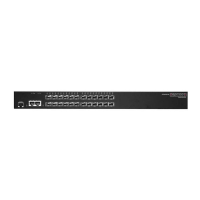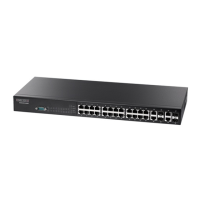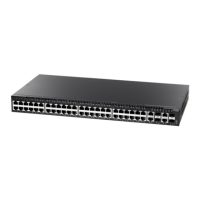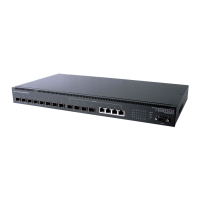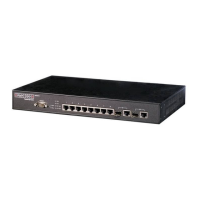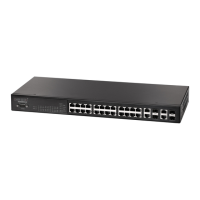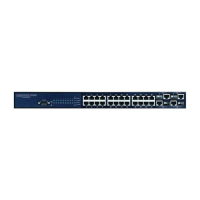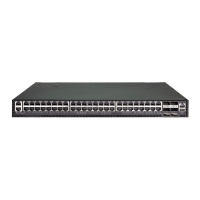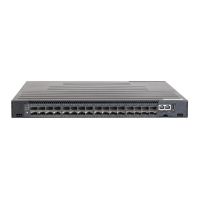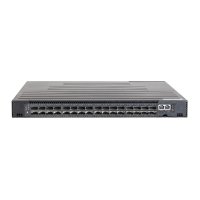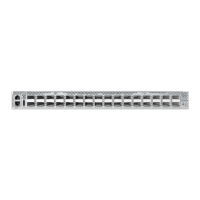Chapter 12
| Security Measures
DoS Protection
– 336 –
These packets may have any of the following attributes:
◆ Header length is less than 4 bytes
◆ Raw IP data length is less than header length * 4
◆ Invalid Source IP Address – Protects against attacks in which hackers replace
the source address in packets sent to the victim with an invalid source IP
address to protect the identity of the sender or to mislead the receiver as to the
origin and validity of sent data. These attacks may send a constant stream of
packets with an invalid source address such as 127.0.0.1, causing receiver to
respond in the desired manner, while continuing to hide the identity of the
attacker. This type of attack is especially effective since the packets may seem
to come from different sources and thus making the perpetrators hard to trace.
These packets may have any of the following attributes:
◆ 224.0.0.0 ≤ source IP address ≤ 240.0.0.0
◆ Source IP address is 127.*.*.*
◆ Source IP address is 255.255.255.255
One of the main reasons for forging a source address while staging a DoS attack
is to avoid detection upon staging the attack. The other reason is to stage a
twofold attack. One example of such an attack is a smurf attack. In a smurf
attack, the attacker attacks in two places at the same time. Not only is the end
target affected by the large number of echo replies received, but the network
that acts as the reflector is also affected by the large amount of traffic.
◆ Invalid Destination IP Address – Protects against invalid IP destination
address attacks. When a stream such packets are received, this can indicate a
denial-of-service (DoS) attempt or just a packet generator using RAW sockets
on the network.
These packets may have any of the following attributes:
◆ Destination IP address is 127.*.*.*
◆ Destination IP address is 0.0.0.0
Protection for IPv6
◆ Invalid IP Address – Protects against attacks in which the source IP address
and the destination IP address are the same.
◆ Invalid Header Length – Protects against attacks which send IP packets with
an incorrect header length. Such packets are not allowed by the system, but
their abundant number can cause computer crashes and other system errors.
◆ Invalid Source IP Address – Protects against attacks in which hackers replace
the source address in packets sent to the victim with an invalid source IPv6
address to protect the identity of the sender or to mislead the receiver as to the
origin and validity of sent data. These attacks may send a constant stream of
packets with an invalid source address, causing receiver to respond in the
desired manner, while continuing to hide the identity of the attacker. This type
